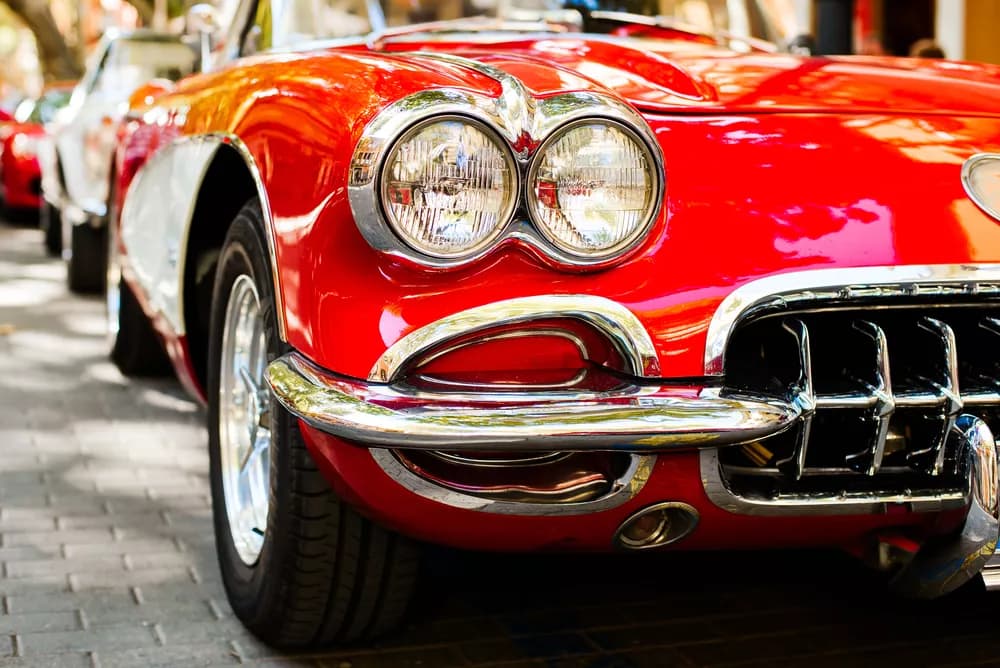Pulse of Information
Stay updated with the latest news and insights.
Classic Cars: Timeless Treasures on Wheels
Discover the allure of classic cars! Explore timeless treasures on wheels and ignite your passion for vintage beauty—hit the road with us!
The Evolution of Classic Cars: A Journey Through Time
The evolution of classic cars has been a fascinating journey that reflects the advancements in technology and changing tastes over the decades. From the roaring 1920s, when vehicles like the Ford Model T revolutionized personal transportation, to the sleek designs of the 1950s, such as the iconic Chevrolet Corvette, each era has left an indelible mark on automotive history. As the mid-20th century approached, innovations like automatic transmissions and power steering emerged, making driving not only more accessible but also more enjoyable for enthusiasts around the world.
As we moved into the late 20th and early 21st centuries, the journey through time for classic cars has continued to evolve with a renewed interest in vintage models and their restoration. Car shows and festivals celebrate these timeless pieces, allowing enthusiasts to appreciate craftsmanship and design. Moreover, with the rise of electric vehicles, classic cars now face challenges and opportunities, as hobbyists seek to blend traditional aesthetics with modern technology. This blending of eras showcases the adaptability of the classic car scene, ensuring its legacy will endure for generations to come.

Top 10 Classic Cars That Changed Automotive History
The automotive industry has undergone significant transformations since its inception, and some classic cars have played pivotal roles in shaping its history. Among these, the Ford Model T stands out as a revolutionary vehicle that made car ownership accessible to the masses. Introduced in 1908, it was the first car to be mass-produced using assembly line techniques, fundamentally changing manufacturing processes across various industries. Another iconic model is the Volkswagen Beetle, launched in the late 1930s, which gained immense popularity post-World War II and became a symbol of counterculture in the 1960s.
The influence of classic cars extends beyond their original models; their legacy continues to inspire automotive design today. The Chevrolet Corvette, unveiled in 1953, revolutionized the sports car market with its sleek design and performance. Similarly, the Ford Mustang, introduced in 1964, created the 'pony car' segment and has maintained its appeal for decades. These vehicles not only changed the direction of car manufacturing but also left an indelible mark on popular culture, making them timeless icons in the history of the automotive world.
How to Care for Your Classic Car: Essential Tips for Preservation
Caring for your classic car is essential to maintain its value and performance. Start by ensuring that you regularly wash and wax your car to protect the paint and preserve its shine. Additionally, it's crucial to keep the interior clean and free from any debris. Regular inspections of both the engine and the exterior can help catch issues early, preventing costly repairs later. Also, consider investing in a high-quality car cover to protect your vintage vehicle from environmental damage and keep it in pristine condition.
Another vital aspect of classic car preservation is managing the vehicle's fluids. Make sure to check and change your oil regularly, and keep an eye on other vital fluids such as coolant, brake fluid, and transmission fluid. Pay attention to the tires, ensuring they are properly inflated and rotated as needed. Finally, storing your classic car in a climate-controlled environment can prevent rust and corrosion, thereby extending its lifespan and enhancing its performance. Follow these tips, and your classic car will remain a timeless treasure for years to come.